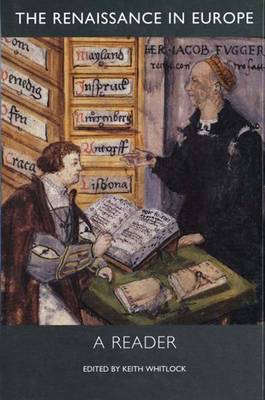Renaissance in Europe
1 total work
The Renaissance in Europe
Published 18 January 2000
The Renaissance in Europe: An Anthology The Renaissance, both as a concept and a period, continues to generate lively controversy not only among academics but also among the general public. Ever since the publication, in 1860, of Jacob Burckhardt's classic study of the Renaissance in Italy, scholars have disputed the origins of the movement and its subsequent influence on European culture and thought. This sequence of three course texts and two anthologies, published in association with the Open University, explores the Renaissance from the interdisciplinary perspective of history, literature, drama, religion, the history of art, philosophy, music and political thought. It provides students and general readers with an unprecedentedly thorough analysis of this absorbing stage in the development of Western civilization. In this vigorous and provocative collection the concept of the Renaissance is interrogated through the work of scholars who have supported or queried Burckhardt's ideas or developed alternative interpretations. The questions posed concentrate on the themes of the source and dispersal of the Renaissance.
Is there a unified concept of the Renaissance, and is it a cultural phenomenon or an historical period? How distinctive were the philosophical and artistic developments of the Renaissance, and what factors determined the reception of Renaissance culture in particular areas and disciplines? To what extent did the Renaissance mediate tradition or notions of authority and to what extent did it transform or challenge them? The Reader addresses the themes of humanism, structures of authority, and levels of culture among different social orders and between men and women. And it examines what Burckhardt's 'discovery of the individual' really meant for the construction of self in the late medieval and early modern context.
Is there a unified concept of the Renaissance, and is it a cultural phenomenon or an historical period? How distinctive were the philosophical and artistic developments of the Renaissance, and what factors determined the reception of Renaissance culture in particular areas and disciplines? To what extent did the Renaissance mediate tradition or notions of authority and to what extent did it transform or challenge them? The Reader addresses the themes of humanism, structures of authority, and levels of culture among different social orders and between men and women. And it examines what Burckhardt's 'discovery of the individual' really meant for the construction of self in the late medieval and early modern context.
